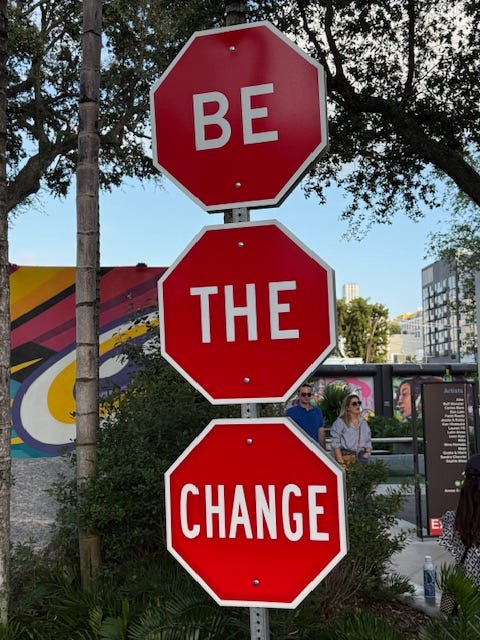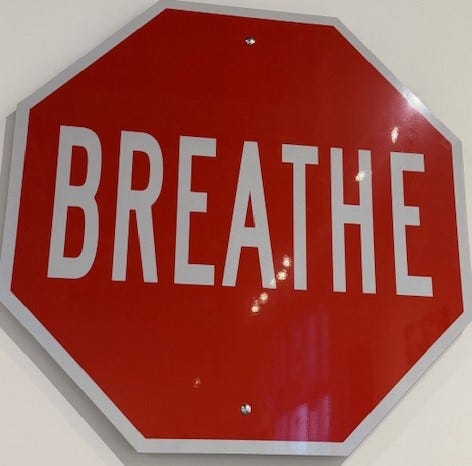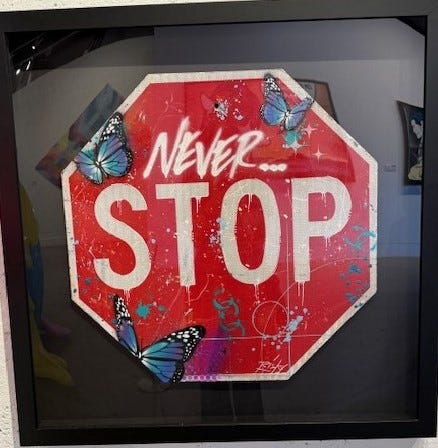MEDICINE
Four Tips to protect your back. Last month I shared how you can test your proprioception—our interal GPS that helps us sense where our body is in space. It’s a sense that declines with age but can be strengthened with exercises. Today, I’m sharing advice on protecting your back. Staying active, using all our senses, and protecting our joints are keys to healthy living.
A recent article in the New York Times listed recommendations made by spine surgeons about how to avoid injuries.
“Skip the B.L.T.” referring to the bend, lift and twist motion—three motions that are particularly risky when done together. Think of removing a child from a car seat or lifting a suitcase out of a trunk. Their advice? Break these movements up. Avoid combining them to protect the vulnerable discs in your spine.
Warm up before you twist. If you’re a golfer or a pickleball enthusiast (I count myself among the latter, though sadly the feeling isn’t mutual—my knees are often the ones complaining), be sure to warm up well and include back stretches throughout your game. It makes a real difference.
Don’t overpack. That carry-on bag might fit in the overhead bin, but should you be the one lifting it there? When lifting anything heavy, keep it close to your body, plant your feet, and use your legs—not your arms or back. Lifting above chest level makes proper form nearly impossible, so the surgeons’ advice is clear: don’t.
Say goodbye to sit-ups. This one surprised me because my fitness class still includes crunches. The article noted that even the Marine Corps has phased out crunches due to their link with back injuries. Spine surgeons recommend planks instead—more effective, less risky. I’ll admit: I’m not a fan of planks either, but I like them better than a herniated disc.
Taxi drivers have less Alzheimer’s. A large observational study recently caught my eye—over 8 million U.S. death certificates were analyzed for occupational data and cause of death. Surprisingly, taxi and ambulance drivers had the lowest proportion of deaths due to Alzheimer’s disease.
Why? Researchers suspect it’s tied to the demands of spatial navigation. These professions require constant mental mapping and orientation, a task that engages the hippocampus, a key brain region that’s among the first to show damage in Alzheimer’s.
The study isn’t perfect—it’s observational, and job roles don’t tell the whole story—but it’s part of a growing body of evidence suggesting that cognitive engagement, especially with spatial tasks, may help delay or reduce the risk of Alzheimer’s. Without effective treatments for the disease, even hints about prevention are worth paying attention to.
Trump fires CDC’s reproductive health team. Among the many devastating layoffs of medical experts from federal agencies, one hit home for me: the dismantling of the CDC’s reproductive health team.
I’ve had the privilege of working with this team for decades, including as an advisor helping to develop U.S. contraceptive guidelines. These aren’t just theoretical documents—they’re essential tools used every day in gynecology practices across the country. They translate complex, ever-evolving scientific data into clear, evidence-based recommendations: Which methods are safe for a woman with migraines? What about someone with hypertension or diabetes? This guidance allows clinicians to provide care that’s both safe and tailored.
Now, that work is at risk. Without this expert team to review and synthesize the data, providers are left without a trusted source. That gap puts patients in danger—a step backward in our ongoing effort to close health disparities. I never would have predicted our government ditching evidence-based care, but of course, it’s happening across the board.
Global Setbacks in Family Planning. Unfortunately, the impact of DOGE decisions extends far beyond U.S. borders. The Trump administration also rescinded international Family Planning aid, cutting off contraception access for an estimated 50 million women in low-income countries.
It’s hard to imagine the effect from far away but I’ve seen firsthand what that access means. On visits to Kenya and Uganda, I met women who had just received long-acting contraceptive methods—and their gratitude was overwhelming. Many told me that with contraception, they could finally focus on the children they already had, start small businesses, and stop living in fear of pregnancy-related complications or unsafe abortions. Contraception wasn’t about choice—it was about survival, and a chance for a better future.
MOUNTAINS
These photos are from a recent visit to the Miami Museum of Graffiti, and seem particularly appropriate for these times. The art there is bold—speaking truth to power in vibrant color.
These times call for that same boldness—in science, in advocacy, and in art.
MORE
Poetry has been on my mind a lot lately. Is it just me or is poetry having a moment?
I recently took a five-part course from Library of America on the history of American poetry followed by a fascinating webinar they hosted on Sylvia Plath’s poetry. Now, I’m enrolled in an 8-week poetry craft workshop at Gotham Writers Workshop—and I’m loving the deep dive. It’s sparking my imagination, feels like a new kind of listening, a slowing down, a different way of noticing the world.
People always ask me if I’m working on a new writing project. While I have no plans for what comes next, this class is opening me up to just play, just discover—no destination in mind. The way the best doors have opened for me. I had never planned to write my book, Tap Dancing on Everest, or my play, The Post-Roe Monologues, I was just open to the inspiration when it came.
I would love to hear from you. If this post resonated with you, here are four simple (and free!) ways to support this newsletter.
Subscribe, if you’re not already a follower
Like this post by clicking the heart, and add your thoughts in the comments
Restack this post (bonus points if you include a note)
Forward this email to a friend or share the link on social media









Another Medicine, Mountains, and More newsletter chock full of helpful advice, inspiration, and words that make us think more deeply about the way we choose to be in the world. Thank you!
I’m having a rediscovered moment with poetry, too! It’s simultaneously complex and simple!